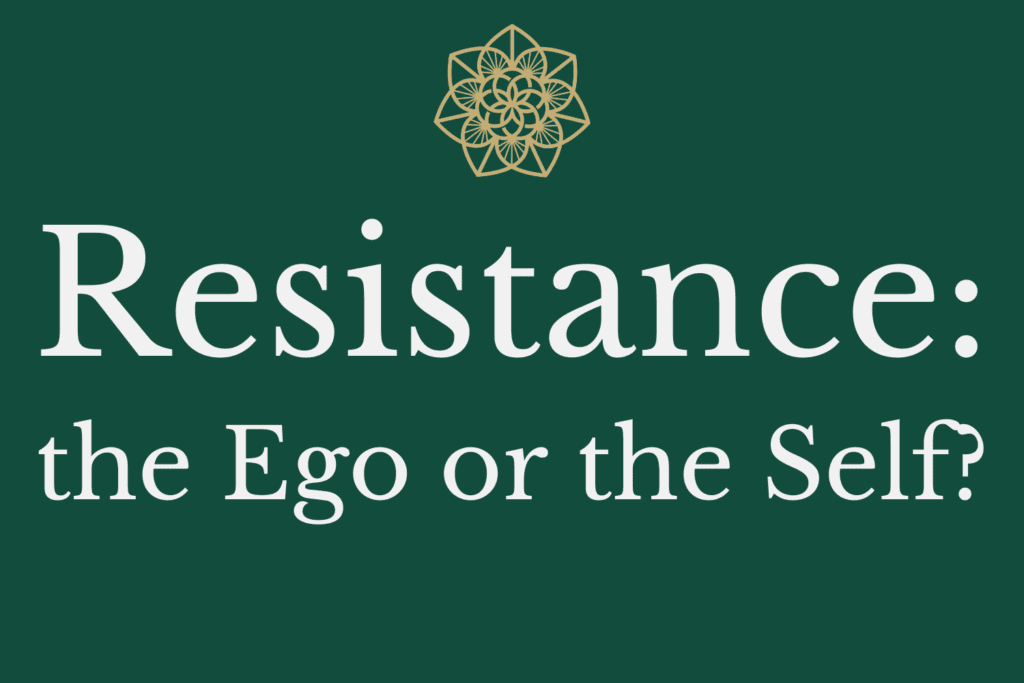For many centuries, there has been a growing disconnect in Western culture from the essence of spiritual growth, wholesome conduct, and the practice of living without conflict.
While the healing and coaching professions have the potential to be powerful catalysts for change, they too often fall short of recognising this disconnect. Spiritual influencers and communities often purport to be agents of light, whilst their practices comfortably steer individuals away from the genuine self-knowledge and transformation that spiritual growth requires.
Many of the cultural shadow elements we must overcome in the West remain unseen by many of those working in this space, for reasons of it being pervasive. We are largely at this point in time engaging in a game of the ‘ego purporting to be the Self’ – commandeering this noble aspiration as a way to bolster and placate the self-image.
Communities not involved in this game of deception are few and far between. Wisdom, generally, does not go viral, and much of what we see as popularity is really just compliance. That’s not to say that genuine spiritual growth cannot gain a mass following – just that at this point in time it has not. Like realising that Santa isn’t real – once you see it, you can’t unsee it.
There is nothing that necessitates this mass unawareness. Some small authentic communities do exist, but they are rare. And seeking such community at this scale is not any less fraught with danger. Many small spiritual communities remain small simply because they are less overt in their deception. They are harder to spot by genuine seekers, but also less appealing to those seeking a coarse and dirty hit of spiritual materialism. Invariably the leaders of such groups are conflicted themselves, disidentifying from their own evil and believing they are doing God’s work.
That said, any path can eventually lead you to the right one, provided it is pursued on the basis of taking responsibility and with wholesome intentions. We must encounter the dark side of such communities in order to realise truth and move towards self-sovereignty.
Genuine spiritual growth is hard. It involves perpetually letting go of who we think we are and continually reworking our model. A sense of security is found in the fixed self-image, but freedom requires that we step outside of it. It is only through repeatedly breaking down the idea of who we are that we can get in touch with the totality of what is.
Resistance shows up every day and is a necessary part of this journey. If there were no challenges there would be no growth.
The standard advice, in order to “get what you want,” might be to “smash the resistance” – that any resistance is a sign of the ego trying to regain control. But this is not necessarily the case, and in fact is often not.
Resistance tells you that a psychological conflict is present. Not which way you ought to resolve that conflict.
Any individual who has set out to seek power and control at all costs must remain blind to this nuance. It is necessary in order to maintain their self-image. They will often play on it by fallaciously suggesting that you resolve your conflict through unwholesome means which they prescribe. Their intention, knowingly or not, leads towards separation and stagnation, not unity and wholeness.
It is entirely possible to ‘feel resistance’ to aspects of yourself you have made progress in, rather than repressed. Often what is assumed to be in our shadow is actually not something we have repressed, but something we have seen through. Sometimes we ‘resist’ certain encounters, choices and behaviours not because we secretly want them, but because a large part of us understands them for what they are.
Shadow work doesn’t mean dancing in front of the camera for social media, making ostentatious declarations of vulnerability, or otherwise behaving egocentrically. There may be many reasons why you chose not to do these things in the past and not all of them were necessarily defensive.
A dangerous number of those involved in the healing and personal development professions are in fact not intent on guiding others towards wholeness, but towards egocentrism in the name of the Self. It’s an old trick, and it plays out time and time again.
There’s nothing wrong with working towards what “you” want. But by “you” do we mean the ego, or the Self? And by “want,” do we mean moving towards growth, or placating our unresolved feelings?
Perhaps it is the Self, not the ego, that is resisting.
Perhaps you are not merely projecting, but detecting.
Perhaps what you are projecting is your own goodness, and what you are experiencing is the inevitable dissonance of real people failing to meet that ideal.
Perhaps you astutely recognise the unwholesomeness, arrogance and hostility in others, but are resistant to call it for what it is.
Perhaps what is coming alive in you is not the same darkness that you see in others, but an ability to respond to it skilfully.
Perhaps the ‘resistance’ you feel is a message from your conscience, and what you thought was the hard way towards growth is actually just another easy way towards compliance.
Perhaps it is a call from our higher aspirations, reminding us that we all can, and must, do better.
It may still be that there are shadow elements at play in challenging encounters, but the answer to that is not to excuse or bypass what you have experienced. Blindly accepting the suggestions and behaviour of others is to conform, not to not-conform.
Not everything can be captured by shadow work. Not everything we find displeasing is a projection. Not everything that’s uncomfortable is a misdirection by the mind. And, as useful as our challenging encounters are, not everything we assume to be shadow is shadow.
If you stopped believing in Santa Claus as a child, does this mean you should now give believing in him another go so that you can let go of your ‘resistance’ to it?
Don’t allow yourself to be gaslit. Even if it’s your coach, therapist or Jungian analyst who is telling you what is in your shadow, and advising you how you ought to resolve it – could this be the same old societal expectations, only in a more sophisticated form? To outsource any decision or opinion to them is still your doing. There is simply no way around it – ego or Self, only “you” can decide the way forward.
So when seeking coaching or therapy, it is vital that you work with someone who is both taking responsibility for their mind and cultivating wholesome intentions, including compassion. Either way, you will learn something, but your ability to choose skilful coaches is a reflection of your development.
The Seven Habits of Individuation is a model you can use to predict the proficiency of a spiritual leader to help you on your journey. It is best to seek out people who are consistently practicing all Seven Habits.
If you nonetheless find a particular person compelling, but they are only practicing, say, three of the Seven Habits consistently, it might be worth exploring instead why you feel attracted to this person.
As is often the way with individuation, perhaps the real lesson is not the one you consciously set out to learn.
If you’d like to read more about the Seven Habits and how to apply them in your own life, you’re welcome to download my free handbook, ‘The Way of Individuation – Seven Habits for Spiritual Growth.’ Click here to access your copy.


